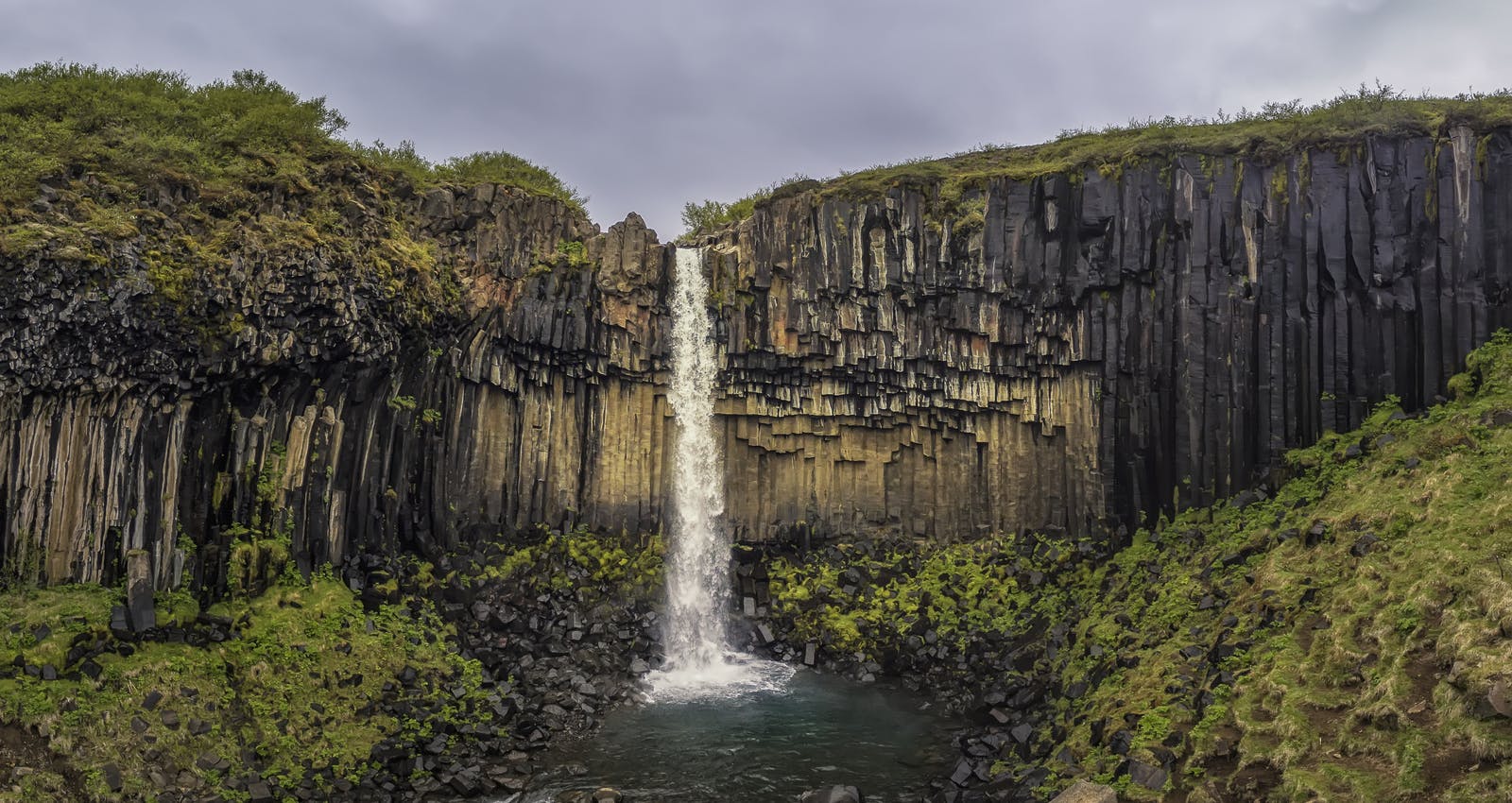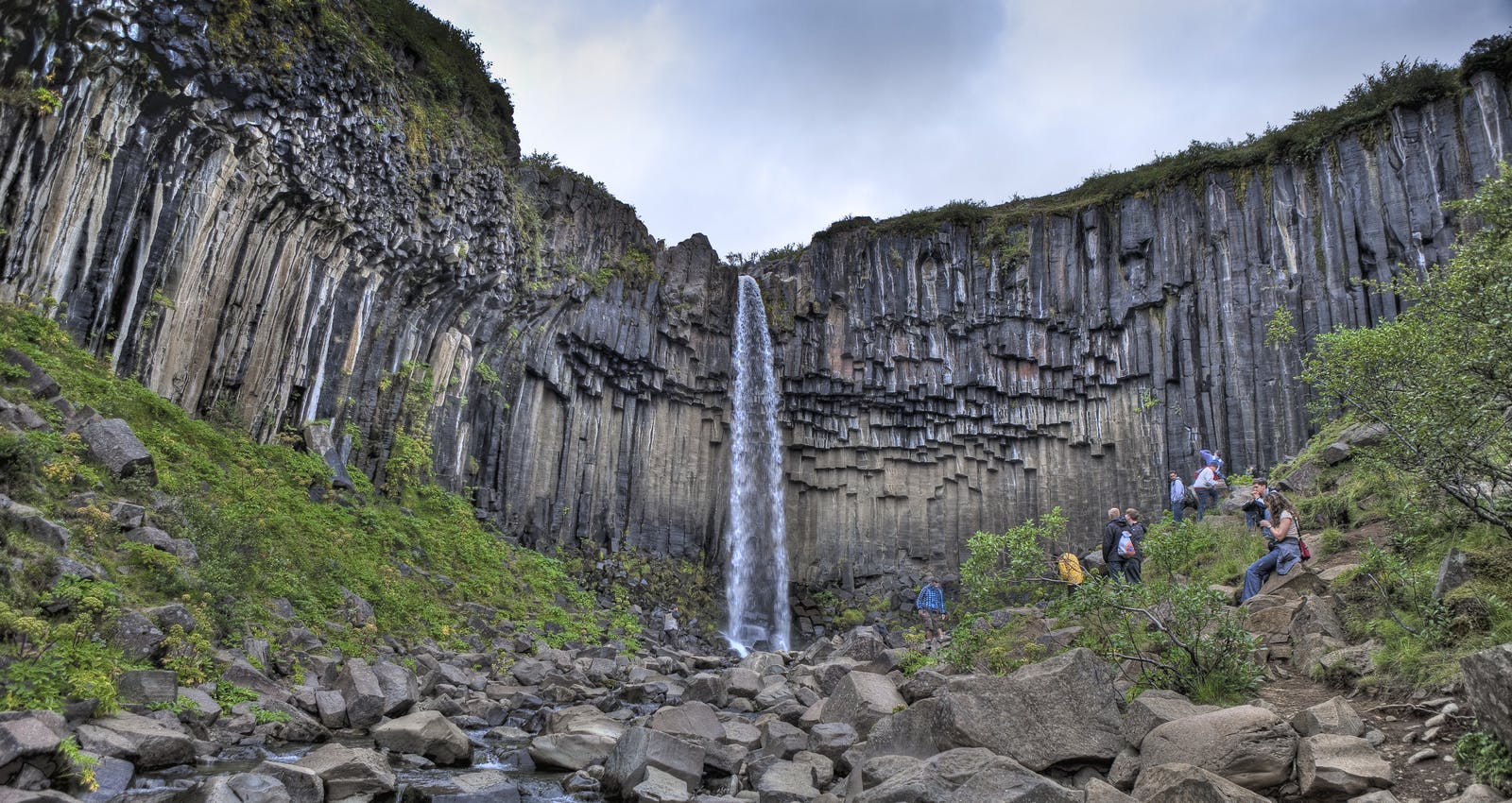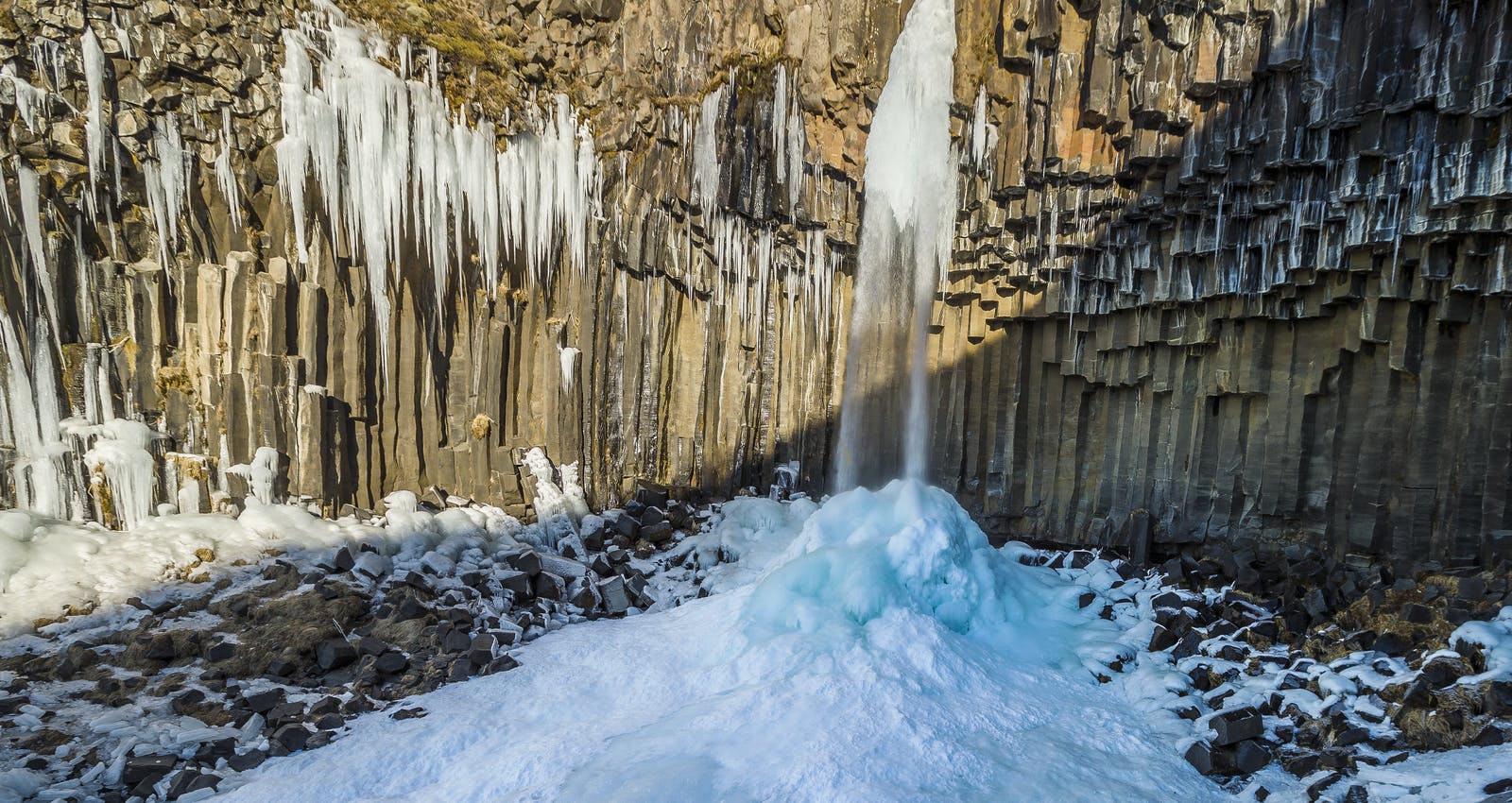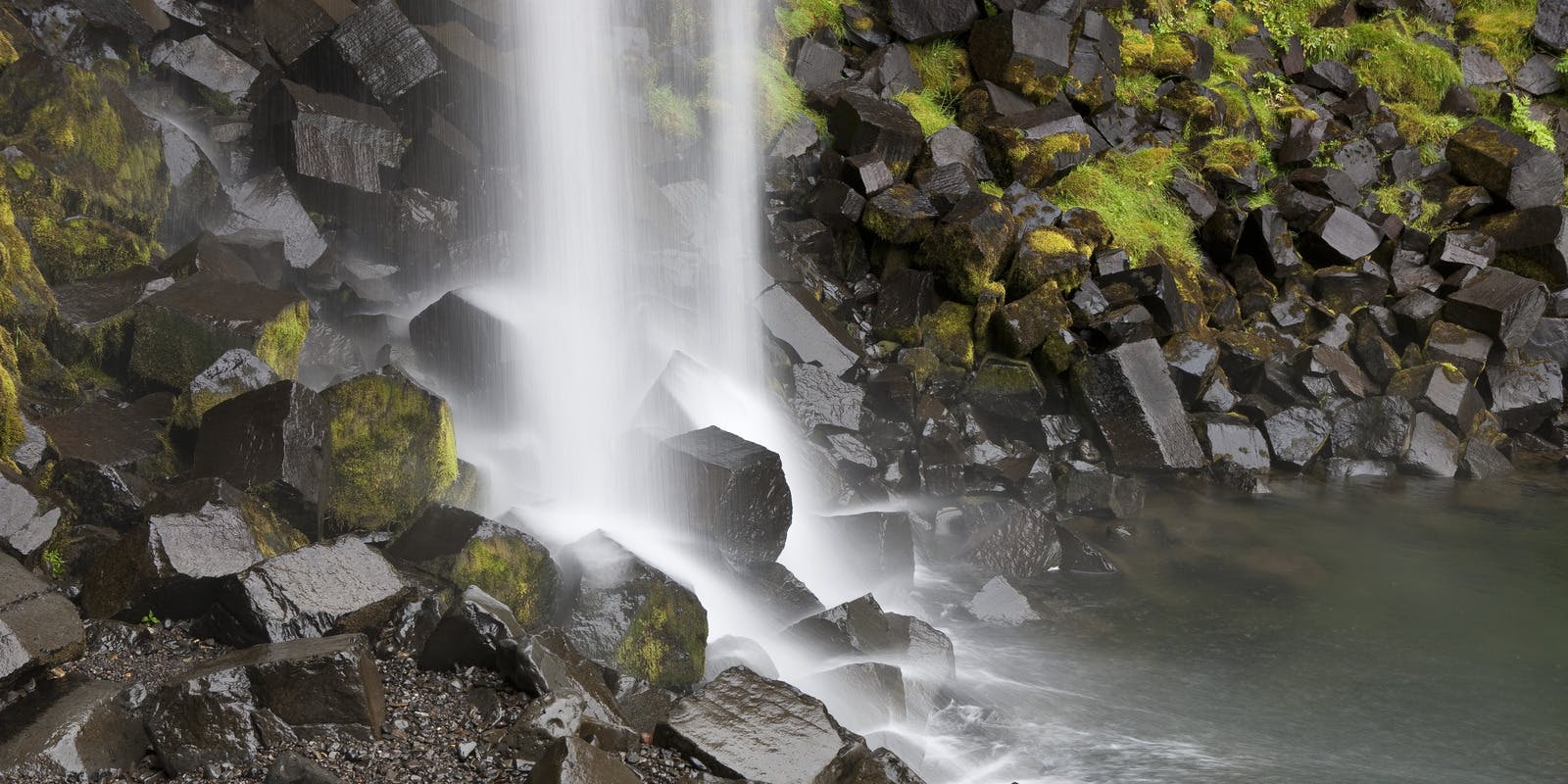
Guide to Iceland’s Svartifoss Waterfall
Svartifoss is a waterfall located in Skaftafell in the southern part of Iceland. Skaftafell belongs to Vatnajökull National Park and has since 2008. The waterfall is 20 metres (66 feet) tall and not very powerful - yet it is one of Iceland's most famous waterfalls. Svartifoss, translating to "Black Falls" in Icelandic, is more than just a waterfall – it's a masterpiece of nature's architecture. What sets Svartifoss apart is its striking backdrop of basalt columns that rise like towering organ pipes, creating a visual symphony against the lush greenery.
The basalt columns, hexagonal in shape, lend Svartifoss a unique and dramatic appearance. Imagine dark, geometric pillars framing the cascading water, providing an otherworldly contrast that captivates all who lay their eyes on it. The result is a waterfall that seems plucked from the realms of fantasy, a hidden gem nestled in Vatnajökull National Park.
But Svartifoss isn't just a pretty face; it's known for its captivating fusion of natural elements. The dark basalt against the vibrant greenery, the graceful cascade of water, and the overall serenity of the surroundings make it a must-visit destination for those seeking an immersive encounter with Iceland's natural wonders.
Inspiration To Icelandic Architecture

The unique hexagonal basalt columns at Svartifoss have been said to have inspired the State Architect Guðjón Samúelsson when he designed the ceiling in the national theatre, Þjóðleikhúsið, as well as Hallgrímskirkja - a landmark of Reykjavík.
Svartifoss, A Geological Wonder
Visit Perlan in Reykjavík to learn more about the different natural components of Svartifoss. This unique and fun museum takes you through numerous exhibitions, allowing you to experience and explore Iceland's nature. You can dive deeper into the geological and environmental factors that have contributed to the formation of Iceland's natural wonders, such as Svartifoss.
How Did Svartifoss Form?

The formation of Svartifoss is a fascinating geological process that unfolded over thousands of years. Here's a simplified explanation of how Svartifoss formed:
1. Volcanic Activity
The story begins some 300,000 years ago with volcanic activity, a common geological feature in Iceland due to its location on the Mid-Atlantic Ridge, where the Eurasian and North American tectonic plates meet. Ancient lava flows from volcanic eruptions covered the landscape, creating layers of basalt rock.
2. Columnar Jointing
As the lava flows cooled and solidified, a process called columnar jointing took place. This process occurs when molten lava solidifies and contracts as it cools, forming hexagonal columns. The columns at Svartifoss are characterised by their distinct hexagonal shapes, resembling giant organ pipes or towering basaltic pillars.
3. Erosion and Formation of the Waterfall
Over time, the surrounding landscape experienced erosion, driven by natural forces such as glaciation, wind and water. The river, which flows through the region, played a crucial role. As the river carved its way through the volcanic terrain, it encountered the resistant basalt columns.
The erosive forces of the river sculpted a gorge and created a dramatic setting for Svartifoss. The hexagonal basalt columns provided a unique foundation for the waterfall, giving it the iconic appearance it is known for.
4. Ongoing Geological Processes
The geological processes that shaped Svartifoss are ongoing. Erosion continues to modify the landscape, and the basalt columns may be subject to further transformation over the centuries.
How To Get From Reykjavik to Svartifoss
When travelling by road, the distance from Reykjavik to Svartifoss is approximately 326 kilometres (203 miles). The journey takes you through the picturesque landscapes of Iceland, offering glimpses of volcanic terrain, coastal views, and glaciers along the way.
Keep in mind that the travel time can vary depending on factors such as road conditions, weather, and the mode of transportation. If you are driving, the journey typically takes around 4.5 to 5.5 hours, depending on the specific route and your trip's pace. It is advisable to plan for additional time to account for stops, exploration, and potential delays.
The Hike to Svartifoss
Open all year round, the visitor centre in Skaftafell can give you information about reaching Svartifoss waterfall. From the visitor centre, it is a 1.5-kilometre hike to Svartifoss. You cannot see the waterfall from the road, but the 1.5-kilometre hike will take about 90 minutes. If you want to take a longer hike, there is a circular option: a 5.5-kilometre hike - this round trip will take you about 3 hours.
FAQ

How long is the hike to Svartifoss?
The hike is about 1.5 kilometres one way.
How long does it take to visit Svartifoss?
The hike from the visitor's centre takes about 45 minutes each way. It is recommended to put aside 2 hours for the short trip, to have time to enjoy the beautiful nature.
Can I Drive To Svartifoss?
No, you cannot drive all the way to the waterfall. It requires a small hike to see the waterfall.







